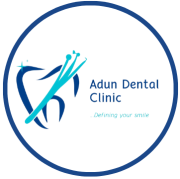Alcohol and Your Oral Health: The Hidden Dangers
You may enjoy an occasional drink with friends or family, but have you ever considered the effects alcohol has on your teeth and gums? Many people don’t realize that alcohol consumption—especially in excess—can lead to serious oral health problems. From dry mouth to tooth decay, alcohol can harm your smile in more ways than one. In this post, we will uncover the hidden dangers of alcohol on your oral health and offer practical solutions to protect your teeth.
Objective:
To educate readers on the negative effects of alcohol on oral health, supported by statistical data, and to provide actionable advice on how to minimize damage while maintaining a healthy mouth.
How Alcohol Affects Your Oral Health:
Dry Mouth (Xerostomia): Alcohol is a drying agent. When consumed, it reduces the production of saliva in your mouth, leading to dry mouth (xerostomia). Saliva is essential for neutralizing acids produced by bacteria and washing away food particles. Without enough saliva, your mouth becomes an ideal environment for bacteria to thrive, increasing your risk of tooth decay and gum disease. According to the National Institutes of Health (NIH), nearly 50% of individuals who regularly consume alcohol experience symptoms of dry mouth.
Tooth Decay: Many alcoholic drinks, especially cocktails, contain high amounts of sugar. Sugar feeds the harmful bacteria in your mouth, which produce acids that attack tooth enamel. Over time, this leads to cavities and tooth decay. A study by the World Health Organization (WHO) found that people who consume alcohol regularly are more likely to suffer from tooth decay due to the high sugar content in alcoholic beverages.
Gum Disease: Alcohol has also been linked to an increased risk of gum disease. Excessive drinking can cause inflammation of the gums, leading to gingivitis or, in severe cases, periodontitis. A study published in the Journal of Periodontology revealed that heavy drinkers are at a higher risk for severe gum disease due to poor oral hygiene habits associated with alcohol consumption.
Oral Cancer: Alcohol is a major risk factor for oral cancer. The Oral Cancer Foundation reports that those who consume alcohol regularly are six times more likely to develop oral cancer than non-drinkers. Alcohol can irritate the cells inside your mouth, making them more vulnerable to cancer-causing agents.
Taking Action – How to Minimize the Damage:
Drink in Moderation: The best way to protect your oral health is to limit your alcohol intake. The CDC recommends no more than one drink per day for women and two drinks per day for men.
Drink Water Alongside Alcohol: Drinking water while consuming alcohol can help wash away sugars and acids, reducing their impact on your teeth. Sipping water also helps stimulate saliva production, which is crucial for protecting your enamel.
Brush and Floss Regularly: Maintaining a strong oral hygiene routine is essential. Brush your teeth twice a day with fluoride toothpaste and floss daily to remove plaque and food particles that alcohol may leave behind.
Visit Your Dentist Regularly: Schedule regular dental checkups at Adun Dental Clinic. Our team can detect early signs of gum disease or tooth decay, and we offer professional cleanings to remove harmful plaque buildup.
Conclusion:
While alcohol is a common part of many social gatherings, its effects on your oral health should not be overlooked. By making simple changes to your drinking habits and prioritizing your dental care, you can reduce the risk of long-term damage. Contact Adun Dental Clinic today to schedule your next dental exam and keep your smile healthy.
